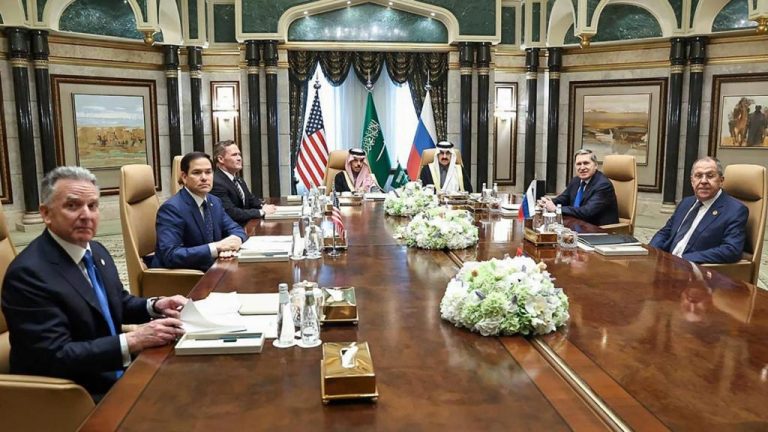
In a significant diplomatic development, top U.S. and Russian officials met in Riyadh today to discuss potential pathways to peace in Ukraine, with Russia taking a firm stance against any NATO presence in the region.
Key U.S. Diplomatic Developments
U.S. Secretary of State Marco Rubio, speaking alongside Middle East envoy Steve Witkoff and National Security Advisor Mike Waltz, characterized the talks as productive. The meeting followed last week’s phone conversation between Presidents Donald Trump and Vladimir Putin.
Rubio expressed optimism about Russia’s willingness to engage in serious peace negotiations, announcing several key developments:
- Plans to restore diplomatic relations through mutual reinstatement of ambassadors
- Commitment to include Ukraine and the EU in future discussions
- Recognition that sanctions relief would require concessions from all parties involved
“This is the first step of a long and difficult journey,” Rubio cautioned, while emphasizing that any agreement must be acceptable to all parties involved in the conflict.
Russia’s Position
Russian Foreign Minister Sergei Lavrov, in a separate press conference, offered a more circumscribed view of potential peace terms. He described the discussions as “a very useful conversation” that helped the U.S. better understand Russia’s position.
However, Lavrov drew clear red lines regarding Ukraine’s future security arrangements:
- Rejected any possibility of NATO expansion to include Ukraine
- Ruled out the presence of international peacekeeping forces, whether under NATO or EU flags
- Termed such military presence “completely unacceptable”
Notable Absences and Reactions
Ukraine’s absence from these initial talks has raised concerns, despite U.S. assurances that “no one is being sidelined.” Ukrainian officials have previously stated they would not accept any peace agreement negotiated without their direct participation.
The EU’s role in future negotiations appears crucial, particularly regarding sanctions relief, with Rubio noting that European partners “have to be at the table at some point.”
Next Steps
While both sides have agreed to restore diplomatic missions, the specific sequence was outlined by Lavrov: the U.S. will first appoint its ambassador, followed by Russia’s appointment. This measured approach reflects the cautious nature of the diplomatic re-engagement process.
The talks mark a potential shift in the diplomatic landscape, though significant challenges remain in reconciling the fundamental differences between Russian security demands and Ukraine’s sovereignty concerns.